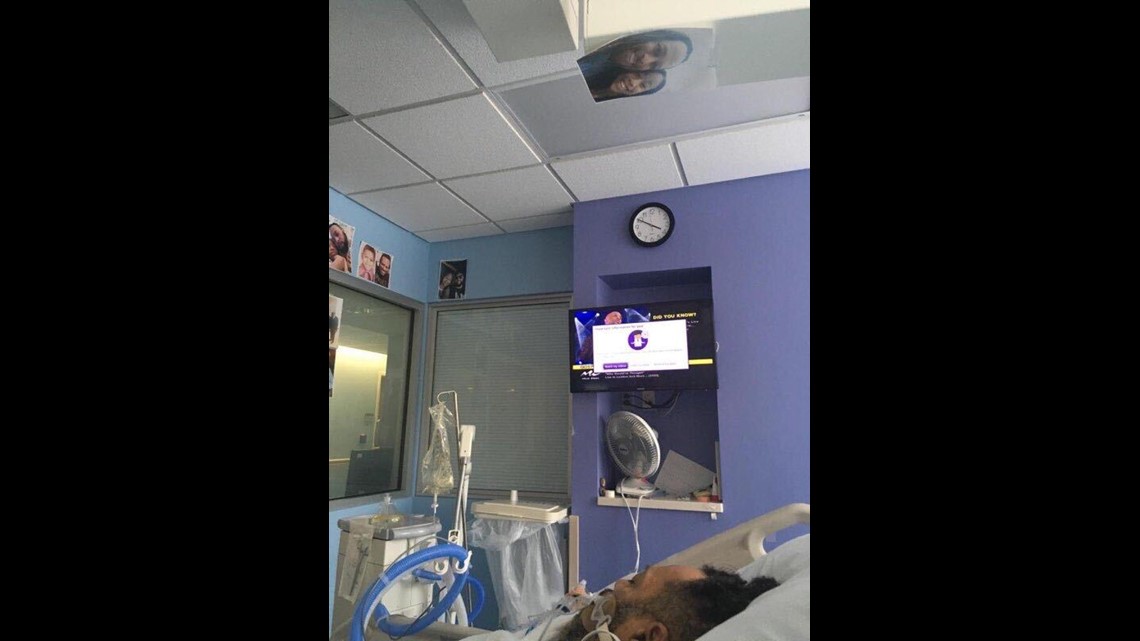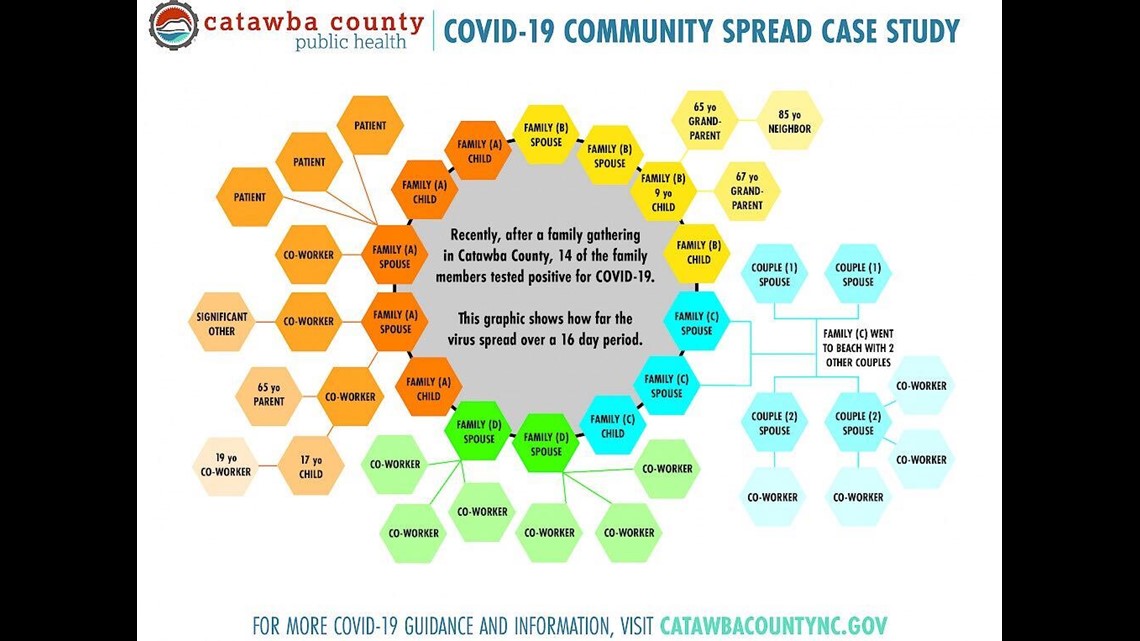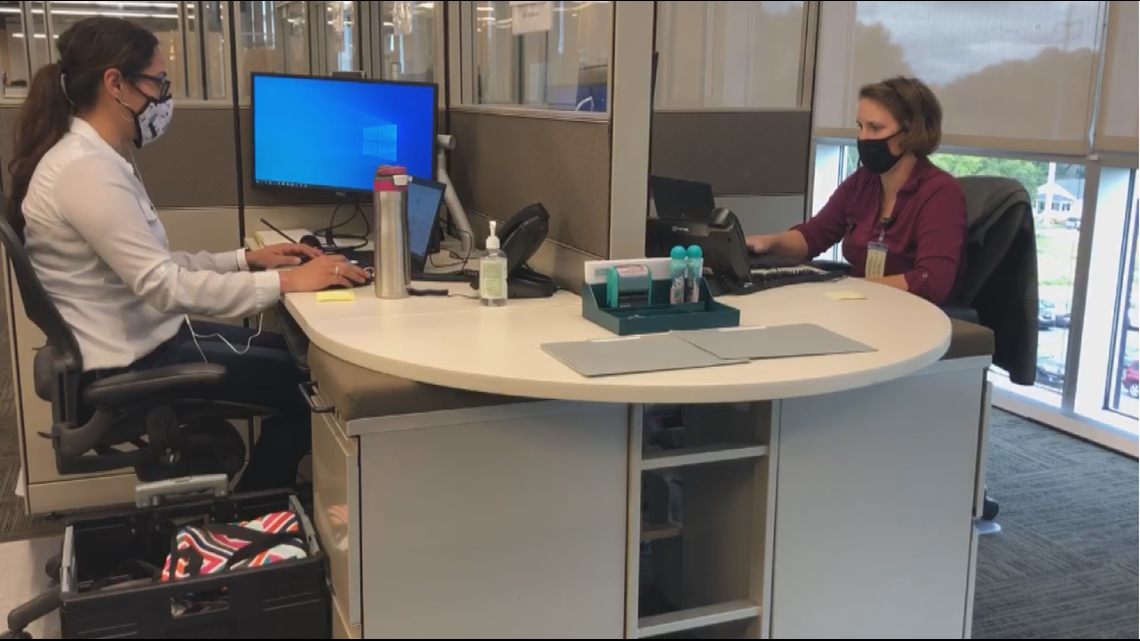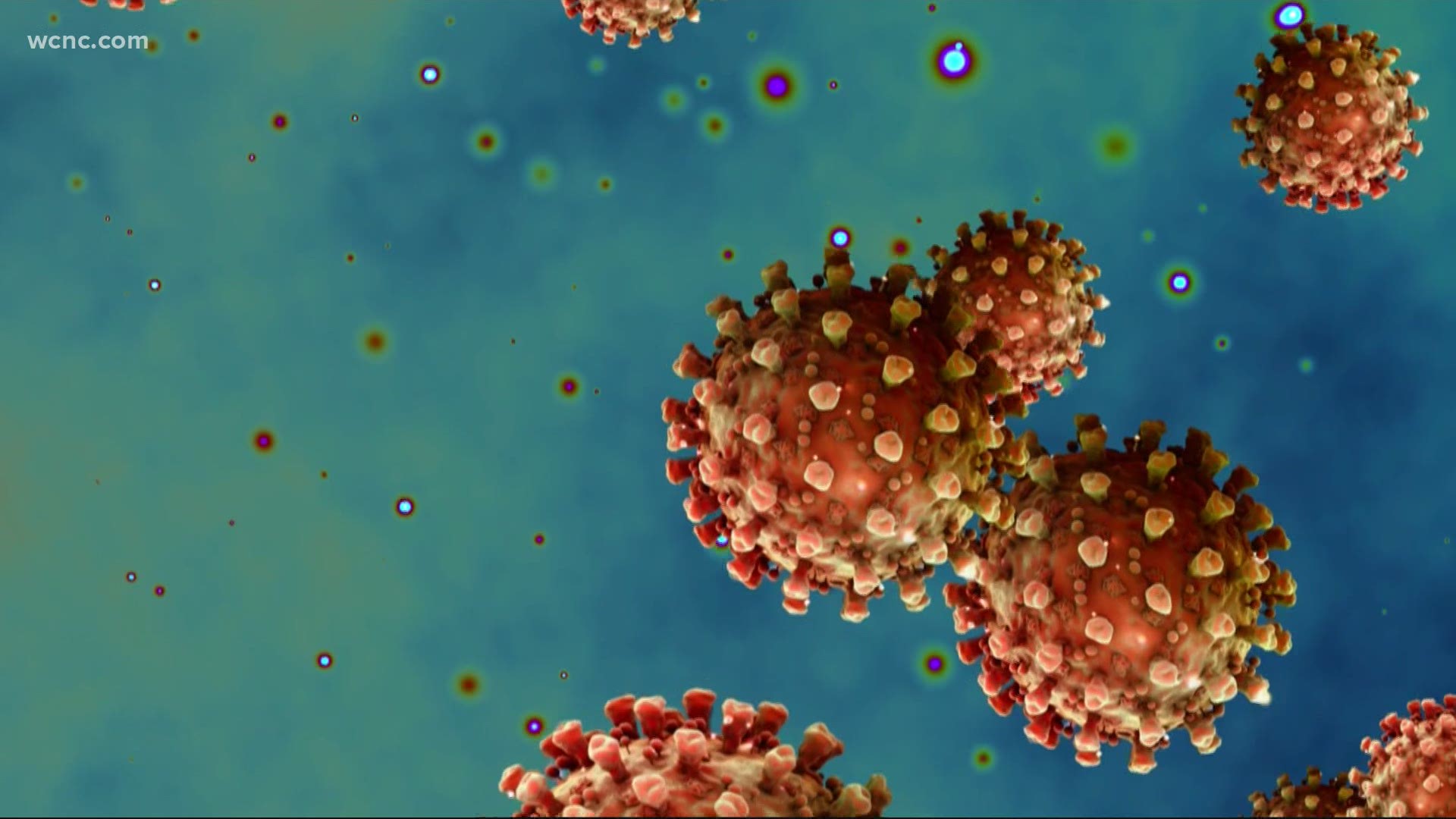CABARRUS COUNTY, N.C. — Despite more than 56,000 positive COVID-19 cases in the Charlotte region, area health departments have only successfully tracked the origins of widespread COVID-19 infections a handful of times since March. Those examples, while rare, are proof it is possible to pinpoint exactly where and how people are getting infected, but it takes the public's cooperation.
"We wish that we could always identify where someone came into contact with the virus in every single case. That would be a public health dreamland," Cabarrus Health Alliance Operating Officer Erin Shoe said. "We do wish we could do more of it."
Cabarrus County is one of the few health departments locally and nationwide that has linked an outbreak back to family gatherings. Investigators concluded a small indoor Easter family get-together, outdoor wedding and outdoor birthday parties resulted in more than 18 infections over a two-week period in April.
"A birthday attendee may have also attended one or two of the other events that happened in that time period," Shoe said. "The age range was from child to grandparent."
Shoe said investigators quarantined 35 people in all and thanks to people's willingness to share information, no one died.
"Anytime you can put pieces of a puzzle together to create a story that provides you with some answers or some clarity, it certainly is helpful," Shoe said. "These individuals were willing to be open and honest and forthcoming."
Health departments have relied on contact tracing to help stop the spread of disease for roughly a century. Using old-fashioned detective work, the goal is to talk to those infected and then find out their close contacts to see who else is exposed. However, as the pandemic drags on, Shoe said fewer and fewer people are willing to help as they're becoming more and more active. She blames it on COVID-fatigue.
The fatigue did not exist at the beginning of the pandemic when 54-year-old Cedric Meekins spent nearly three weeks in the hospital with COVID-19.


"While I was there that first weekend, two gentlemen came in. They were placed on my left and my right," Meekins recalled. "They did not make it through the weekend. One was 10 years younger than me. One was four years older than me. They did not make it and they were on ventilators as well, so it was scary"


Meekins spent 11 days on a ventilator in March.
"My breathing capacity was only 47%" he said. "I had double pneumonia and both of my lungs were completely covered with infection. My lungs looked like cauliflower."
Meekins, one of Cabarrus County's first COVID-19 cases, survived, but his recovery took weeks.
"It did so much damage to me I literally had to learn to walk again," he said. "I could not hold an ink pen. I couldn't dial a phone. It was so bad."
Even so, when health investigators called, he fully cooperated, detailing a trip to Ohio earlier in the month for a conference.
"We concluded that (the infection had to have originated) during my travels to Cincinnati, either on the plane or in the airport," Meekins said.
His lengthy hospital stay prevented contact tracers from making any local connections in his case. After all, for more than two weeks, his only contacts were inside the hospital. To this day, the music teacher is relieved he didn't infect any of his students.
"Not one of my colleagues, not one of the children, not one of my close friends ever contracted from me at that time," he said.
Similar cooperation in Catawba County helped contact tracers link 41 infections in July back to a small family gathering there. Catawba County Public Health Director Jennifer McCracken said no one wore masks and no one maintained social distance at the get-together.
"We discovered that there had been additional spread to neighbors, to friends, to workplaces," McCracken said.
Investigators created a map of every connection and identified nine families and eight workplaces impacted.


"We just felt like a visual description of what we're seeing related to the spread of COVID-19 would be helpful for the community to better understand how quickly the virus can spread from person to person," she said.
Not only are contact tracers seeing less cooperation today, there's also another concern. Mecklenburg County Health Director Gibbie Harris recently raised concerns about contact tracing scams. She said callers are pretending to be health officials, trying to trick people into sharing personal information, such as credit card numbers. Harris said if you get a phone call or text, you can check the number on the county public health website. She also said investigators will never ask for financial information or your Social Security Number.


"I want to reemphasize how important it is for people to share their information with public health, but it's also important that they're comfortable that they're sharing it with the appropriate individuals," Harris said.
Meanwhile, Harris and other public health officials are continuing to warn people, even though the state is reopening, everyone should think twice before going anywhere they might be unnecessarily exposed to the coronavirus.
"When you're outside of your family bubble or your daily work bubble, if you're still working, you really have to be careful," Shoe said.
Despite the challenges health departments continue to experience getting people to answer their calls and be truthful about their connections, contact tracing is making an impact, even if just on a small scale. Since April, more than 3,000 people in Cabarrus County have tested positive for COVD-19. According to Shoe, investigations and contact tracing have helped the county quarantine an additional 4,200 family members and close contacts.
"It's not perfect. It's not going to be perfect, but it's better than nothing," Shoe said.
This story was produced as part of the Charlotte Journalism Collaborative, a partnership of six media companies started by the Solutions Journalism Network and funded by The Knight Foundation.

